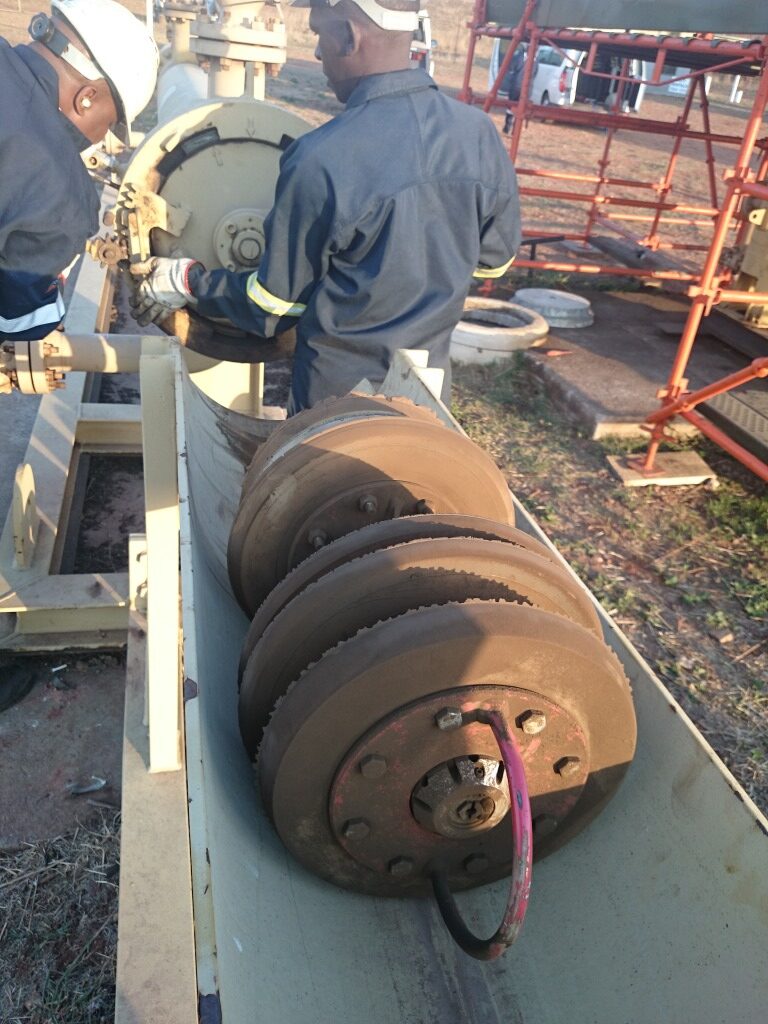Complete Radiation Protection Solutions
At EZT-Radiation, we offer comprehensive radiation protection services, covering program creation, implementation, and maintenance across various sectors. Our expertise spans gold mining, uranium mining, demolition, recycling, and the healthcare industry, ensuring compliance with regulations and prioritizing the safety of your workforce and operations.
Gold Mining
Uranium Mining
Demolition
Waste Recycling
Health Sector
Training
Pigging & Related Operations
Radiation Protection Program Development
Our team of experts develops tailored radiation protection programs encompassing:
- Establishing a dedicated radiation protection function
- Drafting comprehensive procedures and reports
- Implementing contamination and dose monitoring protocols
- Facilitating personal dose monitoring for occupationally exposed personnel
- Conducting specialized training for radiation workers
- Liaising with the National Nuclear Regulator for compliance

Radiation Protection Consultancy
We provide expert consultancy services to review, improve, and continuously uphold the best radiation protection practices for your operations. Our consultants work closely with your existing radiation protection team, offering guidance and support to optimize your program and ensure regulatory adherence.
Radiation Protection Personnel
EZT-Radiation offers qualified and trained personnel to support your radiation protection needs, including:
- Radiation Protection Officers (RPOs) to oversee and manage your radiation protection program, ensuring compliance with regulatory requirements.
- Radiation Protection Monitors (RPMs) to conduct on-site monitoring, contamination surveys, and dose assessments, ensuring a safe work environment.
Worker Safety Assessments
Our highly trained team conducts comprehensive worker safety assessments, delivering detailed reports that comply with National Nuclear Regulator (NNR) standards. These assessments include:
- Specific radiation measurements with accurate GPS locations
- Radiation activity monitoring
- Contamination and dose monitoring
- Area classification and monitoring
- Reporting tailored to your operations and NNR requirements
Activity Surveys
Utilizing advanced instrumentation like the Georadis RS-230, our team excels in conducting accurate activity surveys. These surveys encompass:
- Site-specific mapping for the entire survey area
- Precise radiation measurements with GPS locations
- Comprehensive radiation activity monitoring using the Georadis RS-230
- NNR-compliant reporting
Contamination Surveys and Dosimetry
EZT-Radiation ensures thorough contamination surveys using an array of specialized instruments, including the Electra GM, Electra 1A, Radeye SX, Radeye G10, and Radeye B20. Our dosimetry services include:
- Electronic personal dose monitoring instruments
- Radeye personal radiation detectors
- Thermo Luminescent Dosimeter (TLD) analysis through our SABS partnership
- Instrument issuance, retrieval, and dose register maintenance
- Area classification and monitoring
- Dose reporting for NNR compliance
Regulatory Documentation and Project Management
Our industry experience allows us to compile, review, and submit radiation protection documentation to regulatory bodies like the NNR and DMRE. We also offer project management solutions tailored to your operational needs in the radiation industry.

Pigging & Related Operations
During internal cleaning (also known as pigging) and verification of the integrity of the pipeline, a waste product termed “black powder” is generated and received with the receipt of the cleaning pig at each receiving station (Cawthorne, 2010a). Black powder is a worldwide phenomenon experienced by most, if not all, gas pipeline operators. In the gas industry, the term “black powder” is a colour-descriptive term loosely used to describe a greyish material that is generated inside the gas pipelines.
Black powder can be found in several forms such as wet with a tar-like appearance or dry in the form of a very fine powder. It is generated inside pipelines due to internal corrosion and that the composition of black powder is dependent on the composition of the transported gas. Typically, black powder comprises mainly of iron oxide and residual organic compounds. However, black powder may present a major health and environmental hazard as some black powder is contaminated with mercury and naturally occurring radioactive materials (NORMs) such as radium-226 and lead-210.
These, and other radionuclides, plated out on the internal walls of the pipes, since their parent radionuclides uranium-238 and thorium-232 are found naturally in the gas or the porous rock of the earth’s crust. Lead-210 has been shown to exhibit activity concentrations in the range of 6 Bq/g to 26 Bq/g (IAEA, 2003). This black powder may therefore pose a radiological risk to workers. The National Nuclear Regulator (NNR) Act, No 47 of 1999 (DME, 1999), determines that operations or facilities that handle materials defined as radioactive material should obtain nuclear authorisation to do so. A radiological safety assessment of the worker exposure is one of the documents that needs to be submitted to the NNR for the nuclear authorisation. This report covers the radiological safety assessment and survey results in terms of the aims, scope and strategy as described in Section 3 of the NNR licensing guide (NNR, 1997) and taking account of the applicable criteria as described in the National Safety Standards and Regulatory Practices (DME, 2006).
